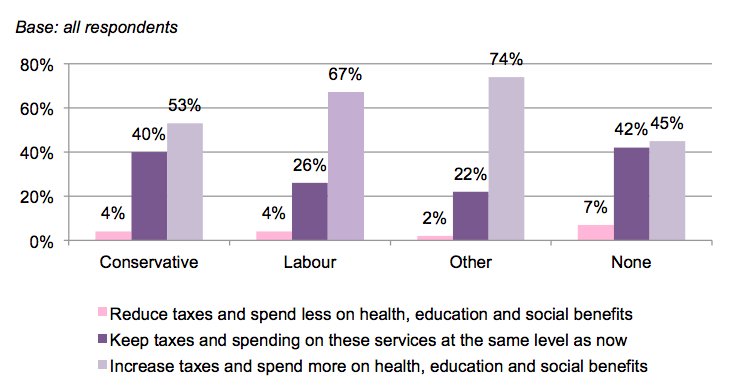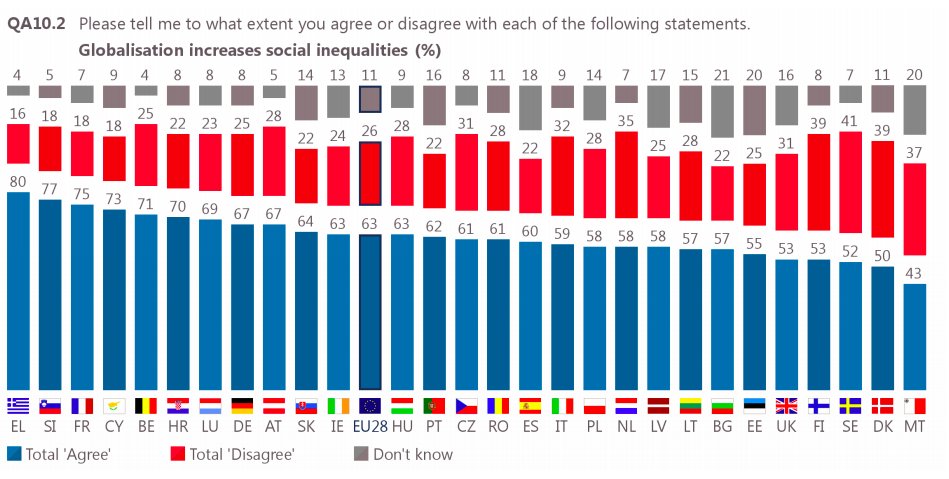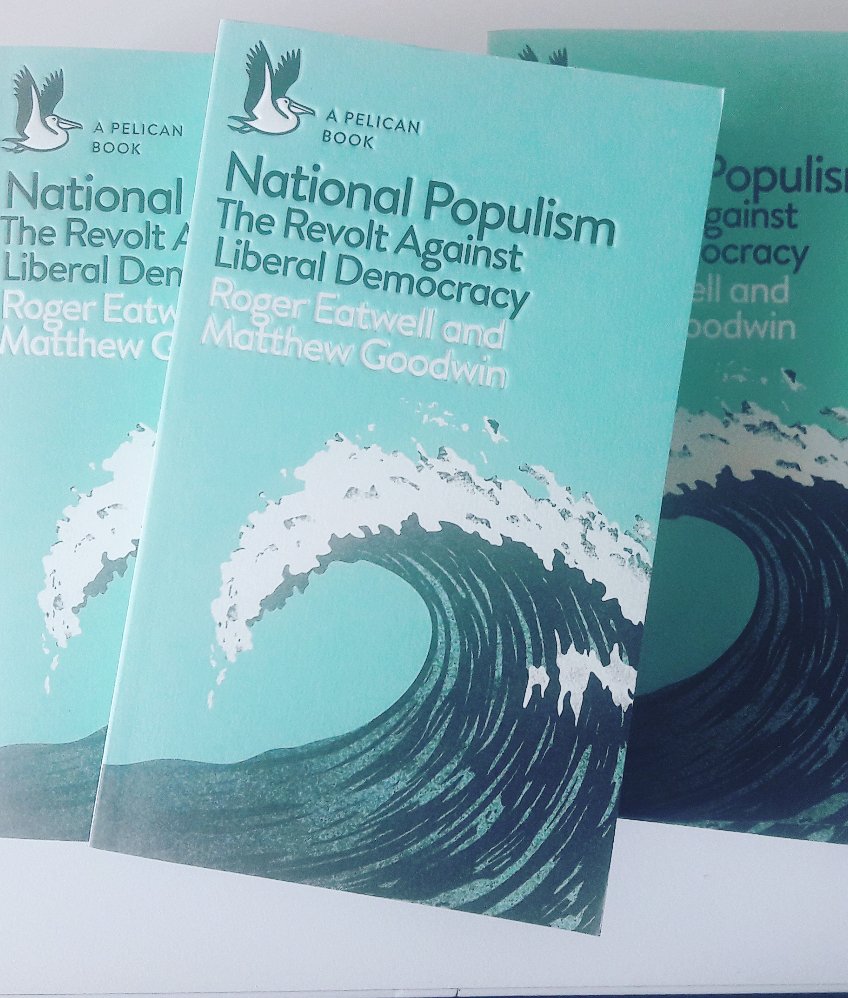Britain is about to transition from a debate about 'Brexinomics' to a debate about 'Corbynomics'
Lots of people in the City are already having that debate
But, crucially, and for the first time in 15 years, most Tories (53%) say the same
The vast majority of Brits (65%) said "I'd rather the government spends more on public services even if it means higher tax" versus only 18% who said "I'd rather pay less tax even it means less spend on public services"
Royal Mail (Con 53%, Lab 78%)
Rail (Con 43%, Lab 78%)
Energy (Con 36%, Lab 66%)
Water (Con 42%, Lab 74%)
Bus firms (Con 35%, Lab 64%)
'Utilities (water, gas, electric) provide best service when run by competing private firms'
vs
'Utilities provide best service when run by nationalised companies owned by the government'
Only Tories split evenly (40-39), while clear pluralities in every other group backed nationalisation
Has private companies running public services 'gone too far/much too far'?
64% of all Brits agree (29% agree strongly)
Only 39% agree with this statement
74% agree
Only 29% agree
Only 22% disagree
Only 19% agree
1) I'd prefer wealth to be spread more equally even if it means the economy grows more slowly
2) I'd prefer the economy to grow faster even if it means slightly more inequality
(So did 64% of Leavers and 54% of Tories by the way)
By hoovering up a lot of UKIP/working-class voters in 2017 your electorate is today a little more economically protectionist/interventionist than in earlier years -- they want changes to the economic settlement
1) Private competition increases living standards for the majority bc it creates jobs and keeps prices down
vs
2) Private competition reduces living standards bc it mainly helps the rich, leads to poverty wages and shoddy services'
Only Conservative voters are more likely to back the first by a break of 54-27
Though, intriguingly, almost half of the population do not back either
But the idea that "Corbynomics" does not have resonance/widespread appeal is wide of the mark - he has a receptive audience
End/














